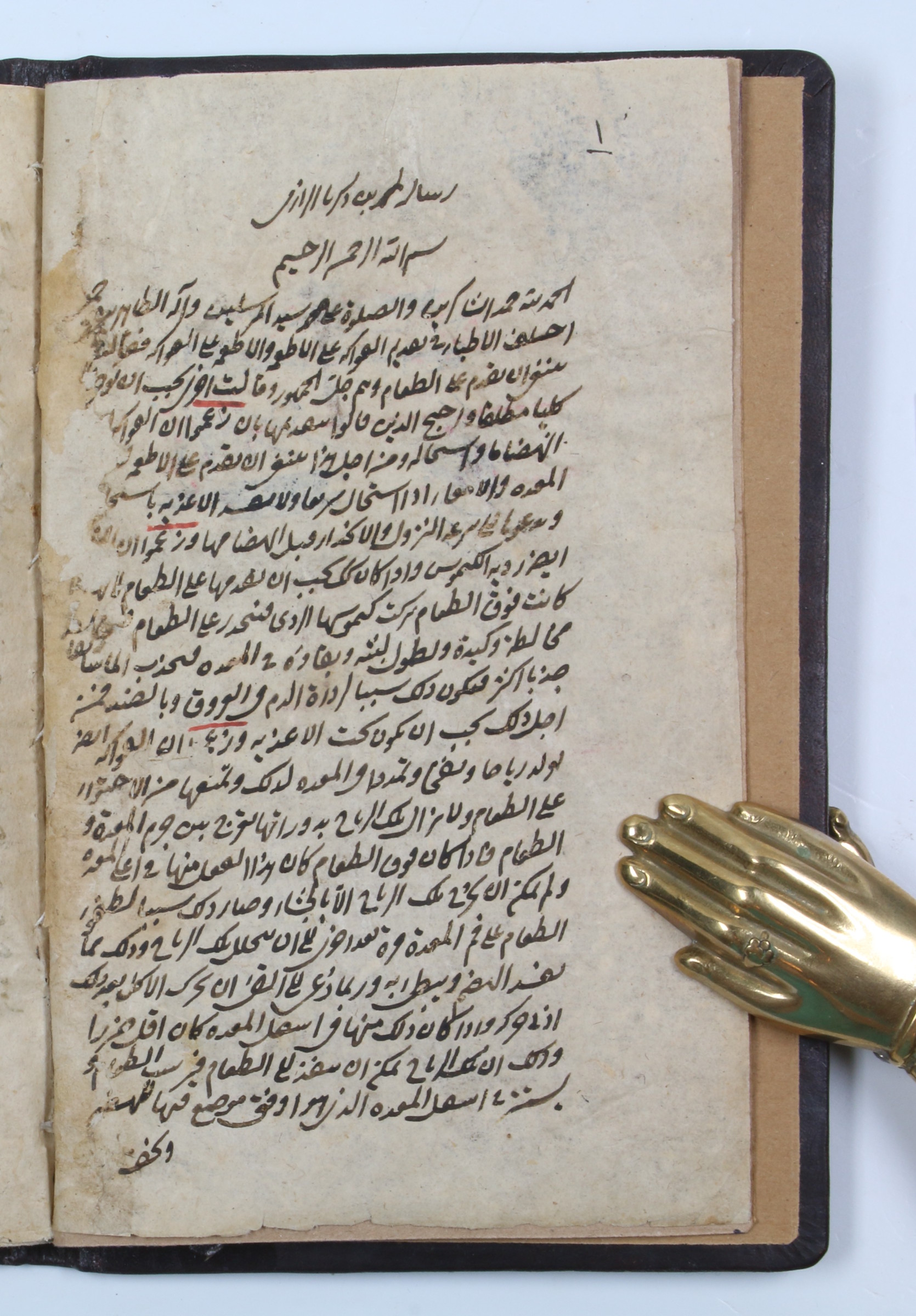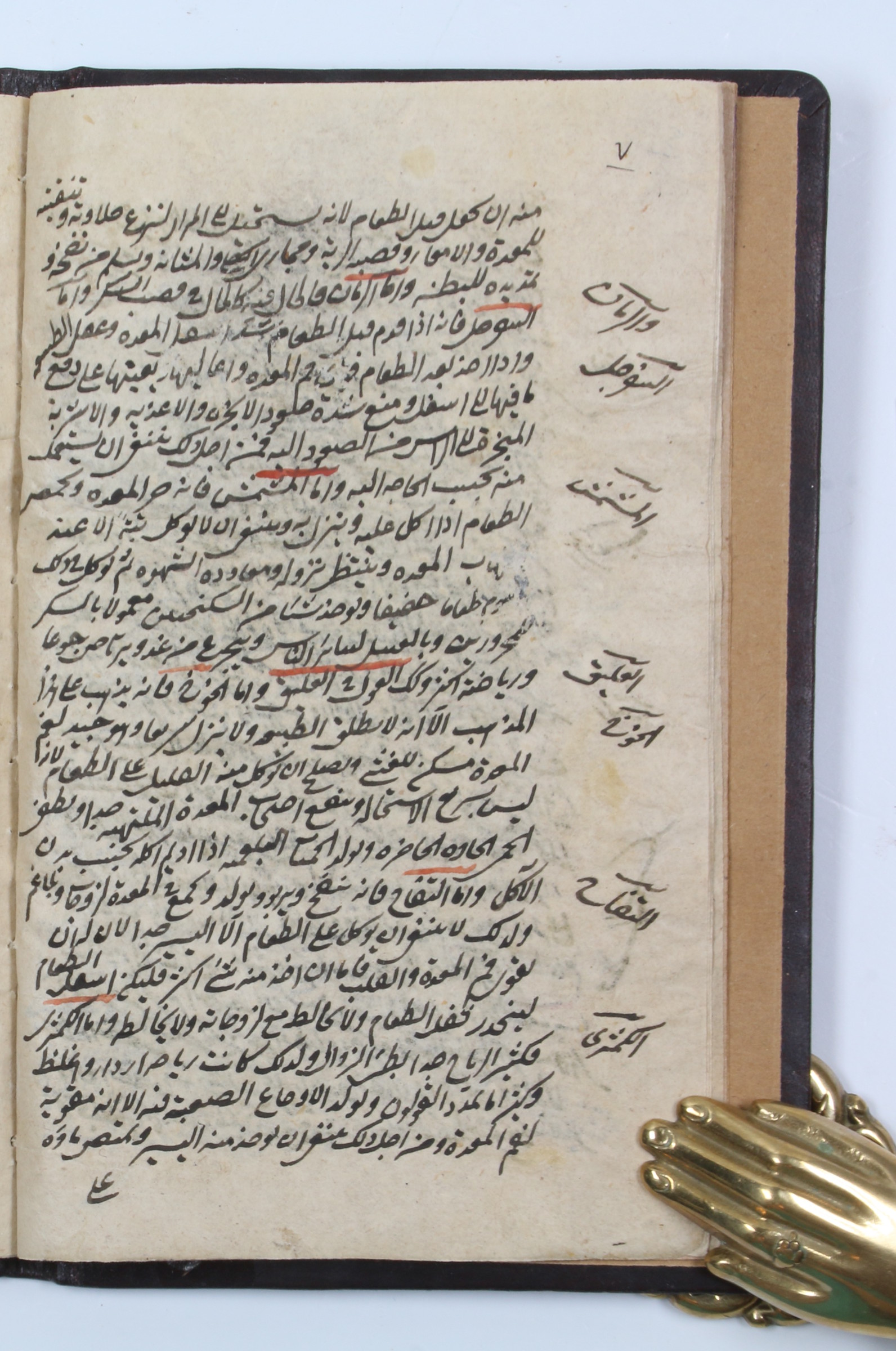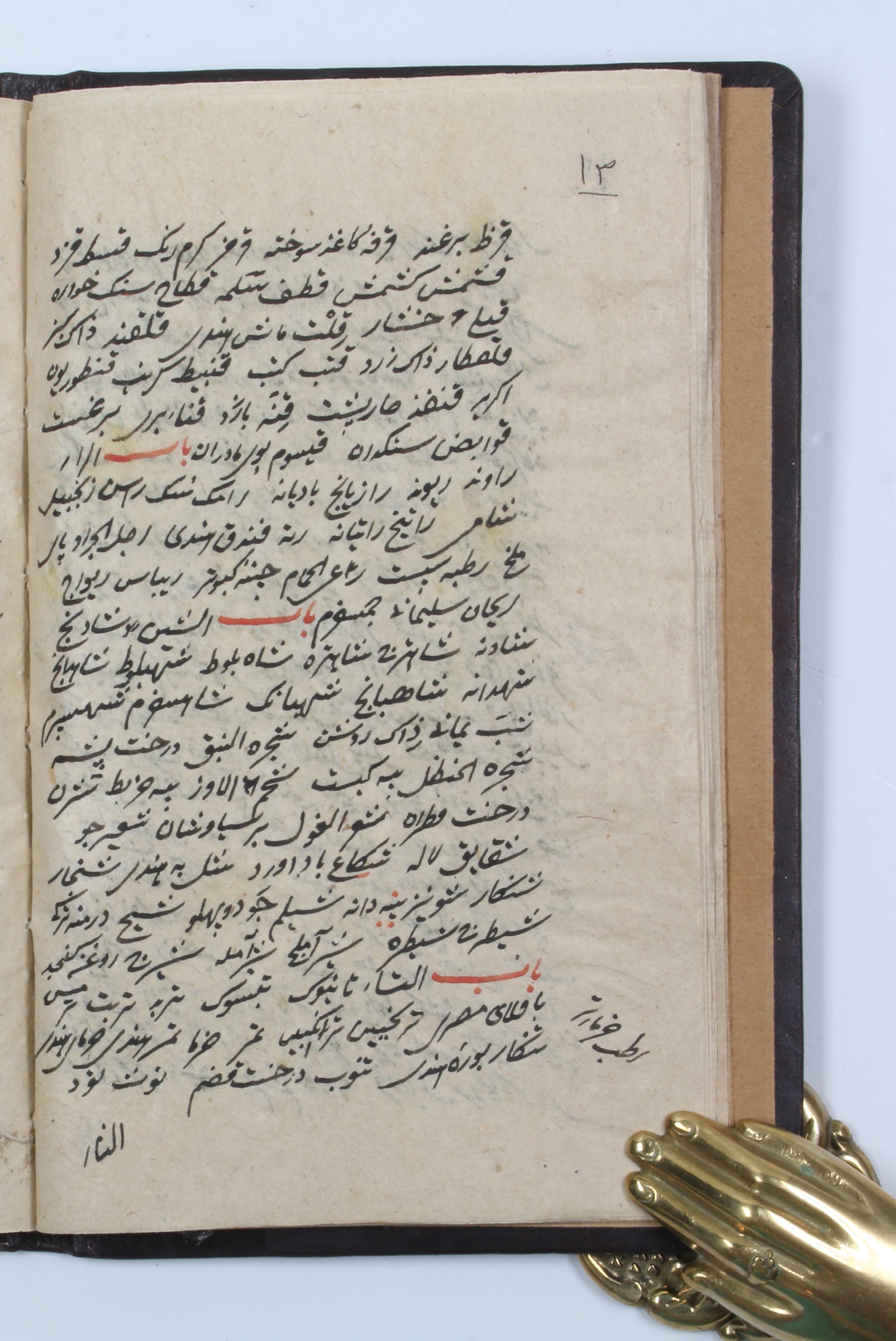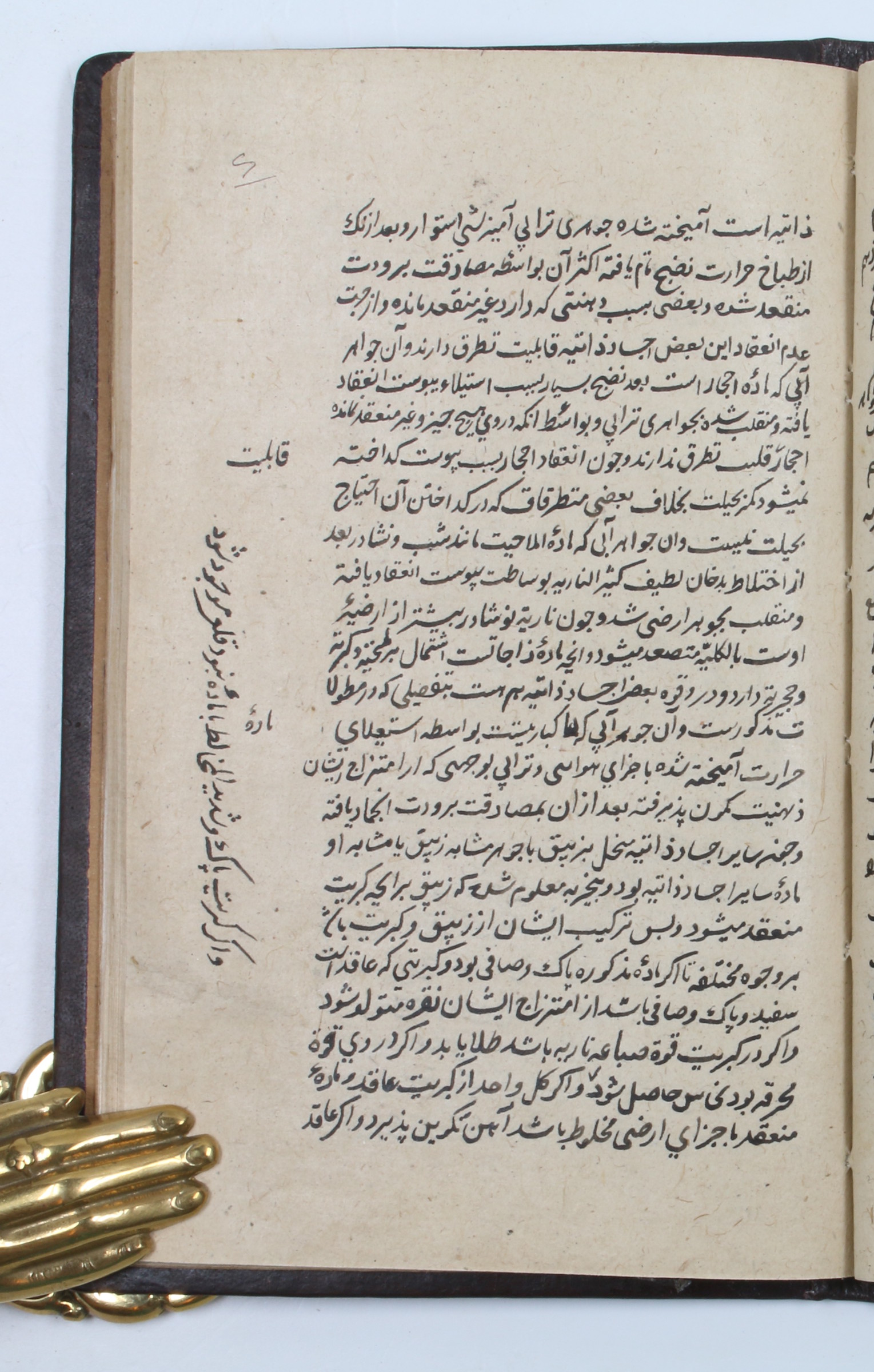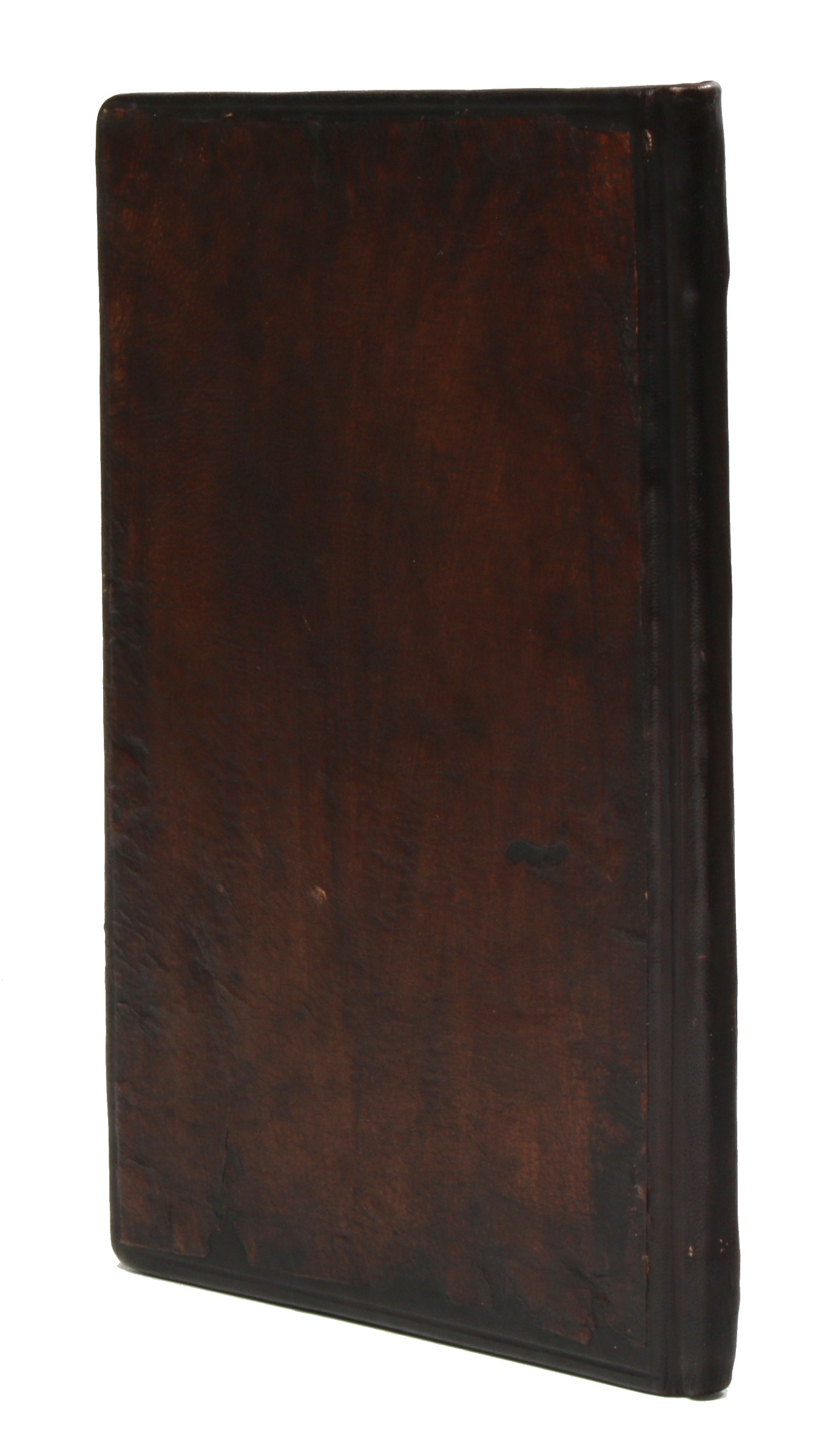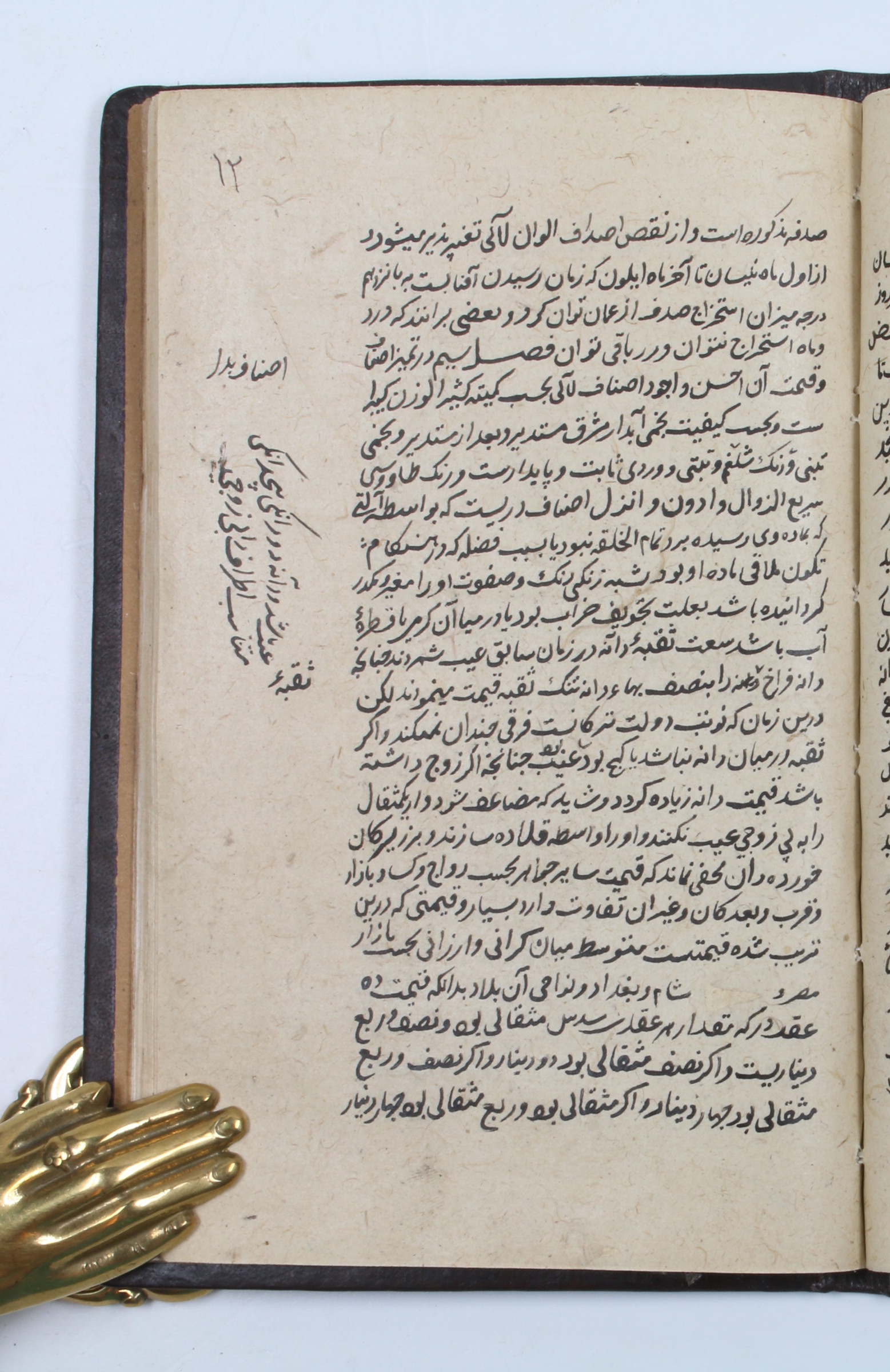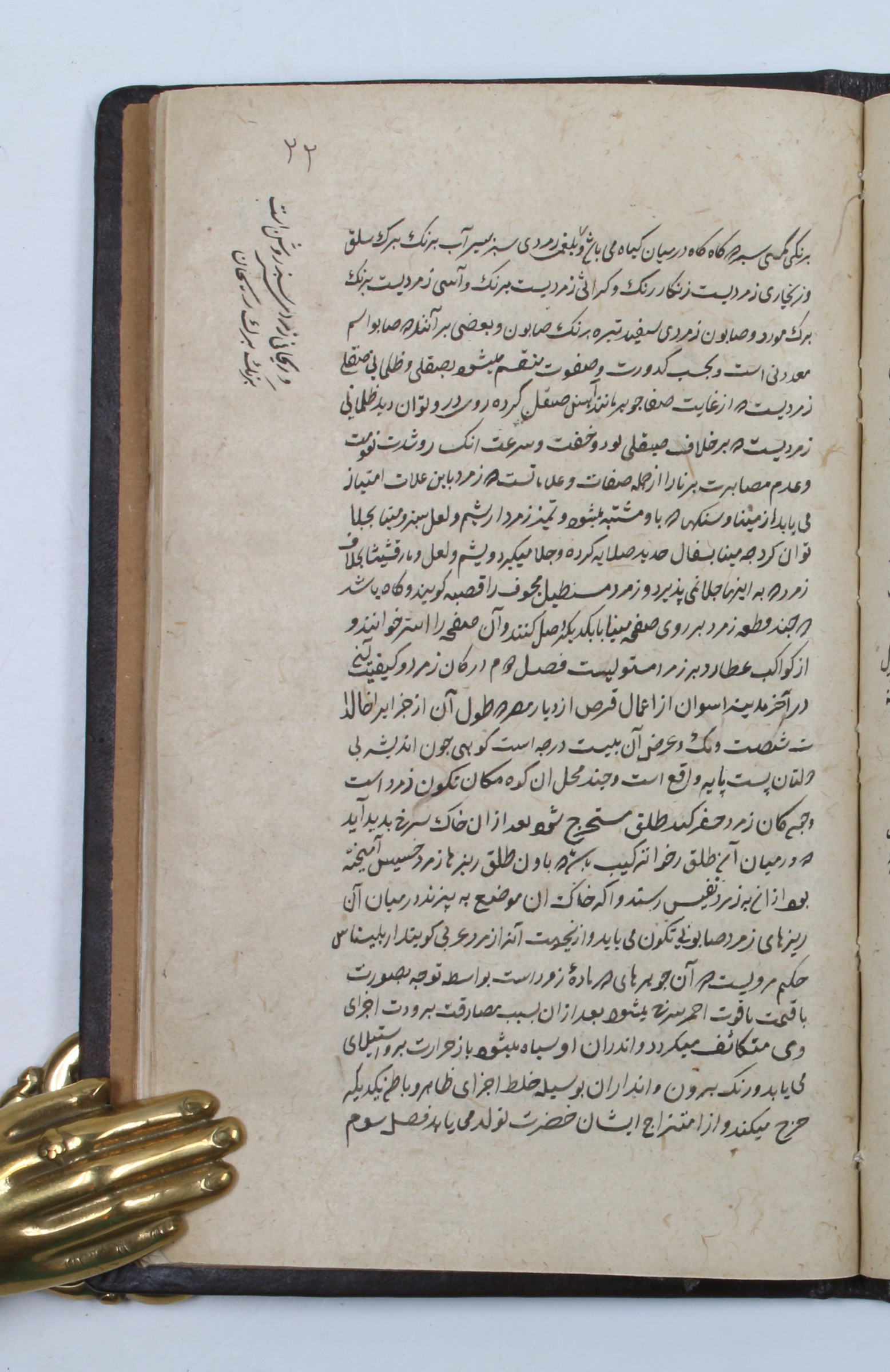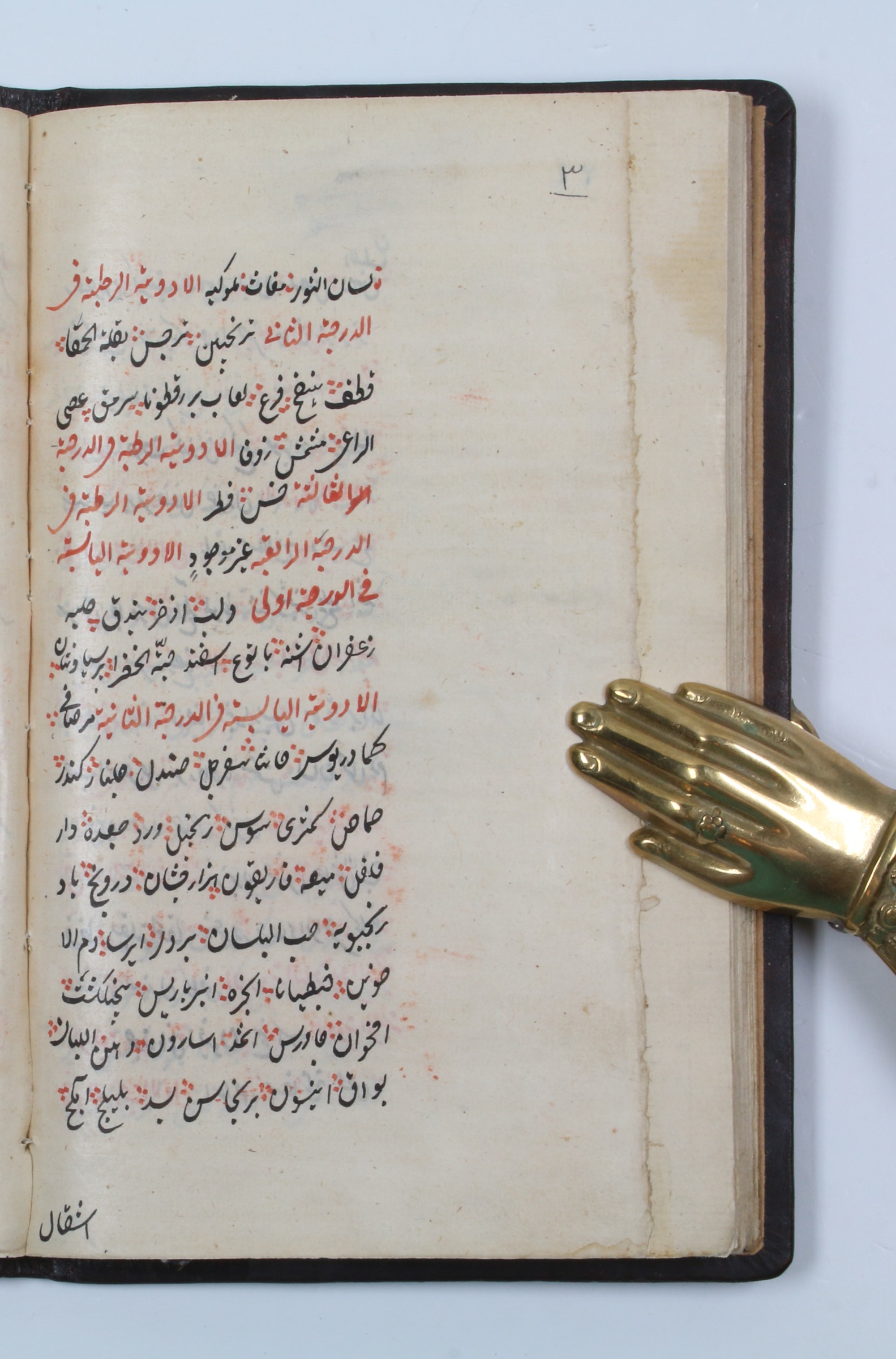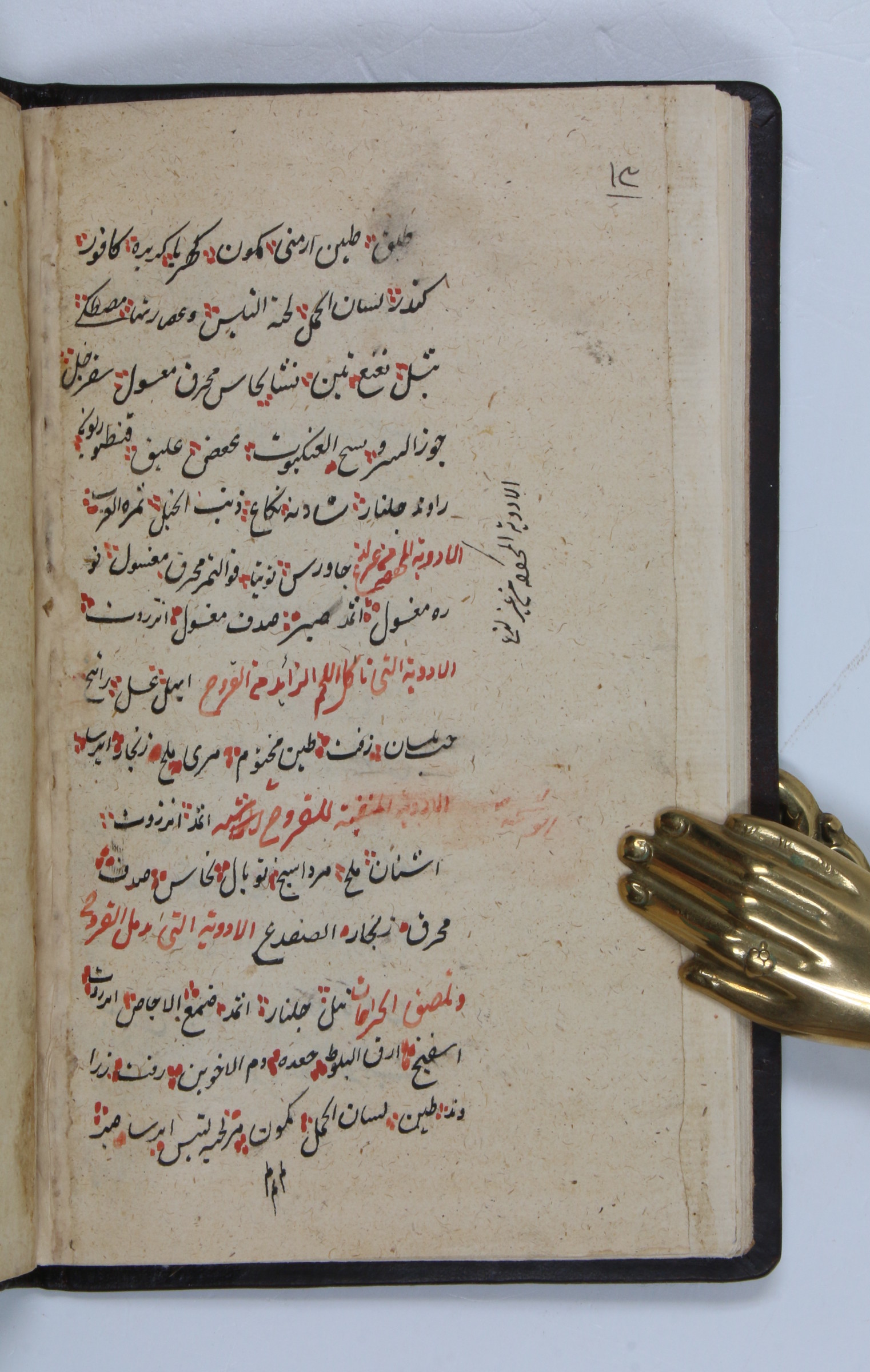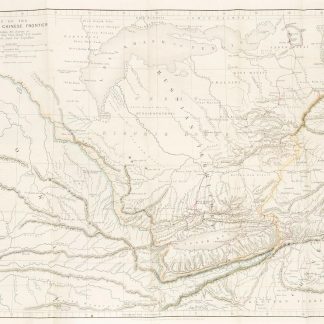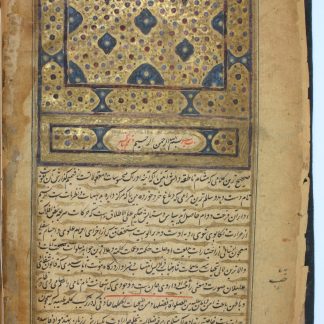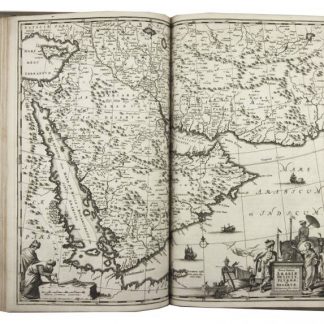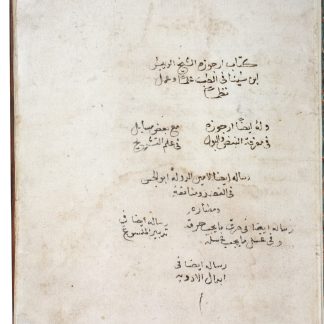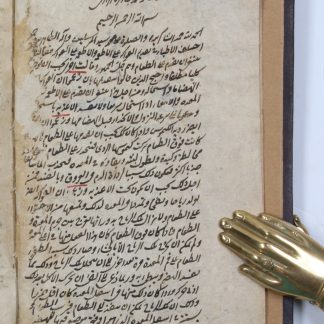Al-Razi on the topic of a good diet
Risalah fi taqdim al-fawakih qabl al-ta'am wa-ta'khiriha [A treatise on eating fruit before or after a meal].
8vo (126 x 200 mm). 32 ff. (the first 5 leaves contain Al-Razi's text). Arabic and Persian manuscript on paper. 18th century leather rebacked with modern spine.
€ 28,000.00
A treatise in Arabic by one of the greatest names in the history of medical science, Abu Bakr Al-Razi (ca. 864-925), also known by the Latin name Rhazes in Europe. Here he writes on the topic of foods and eating habits, bound in a manuscript together with two selections from two 14th century Persian works on medicines and gemstones, followed by an 18th century Arabic pharmacopeia.
Al-Razi was a Persian polymath with an interest in alchemy, philosophy, and medicine who lived and worked in Baghdad and his hometown of Ray. He was an early proponent of experimental medicine, a doctor, and a teacher; he was the first to record a differentiation between smallpox and measles, and the pupil's reaction to light. By modern standards he would also be considered a holistic physician, with a multifaceted approach to the health of his patients, concerned not just with the treatment of acute symptoms via surgery or medicines, but also with general health and especially with diet, as is particularly well documented in this manuscript, which discusses which fruits should be consumed at which times to promote health in a patient.
Bound alongside Al-Razi's treatise are other aids for the aspiring physician or scholar, which include: extracts from a translation of a list of drugs into Persian (written by the same scribe as the Al-Razi treatise), an extract of a Persian treatise on gemstones from the same period, and finally an 18th century Arabic list of medicinal drugs, detailing their uses and sorted by their state (i.e., cold drugs, wet drugs, and dry drugs).
A few subtle paper repairs; in excellent condition and quite well preserved.

